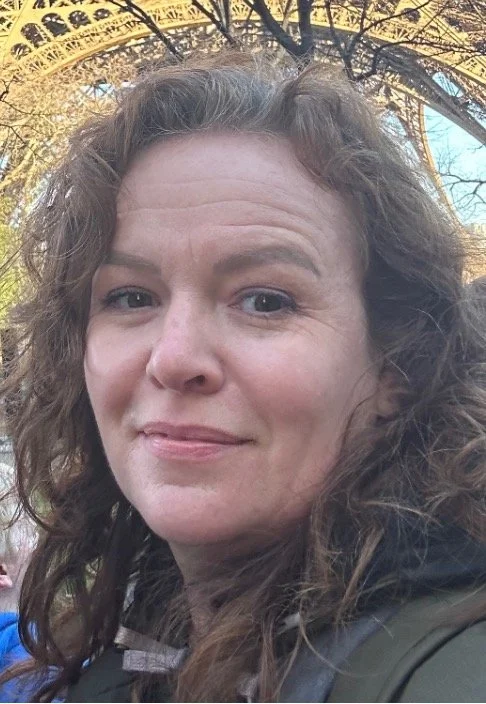First Place: A Day of Life and Death
On our ofrenda, I place chocolate, agua, mezcal, and beer among the photographs of our dead. Coors isn’t sold in Oaxaca, so I put a Victoria instead. I think Daddy would have liked it. As I light the copal, white smoke rises. Its sweet smell reaches my nose. Under a golden archway of caña and flores, Daddy’s face stares at me from under his white baseball cap. His once-brown eyes have turned gray, his chestnut hair now the color of a life lived hard. I pluck petals from cempasúchil letting them fall to the floor. I make a path from the ofrenda to the door, hoping they will lead us to each other, if just for a night.
A decade earlier, I landed in this southern Mexican state of Oaxaca, the place of the huaje. My six-year-old son still transposes the first two syllables, so he calls it Xaoaca, instead. I grew up in places with names that were hard to pronounce, too. Chestatee, my elementary school, was the place of the light. Dahlonega, my college town, was a place of gold. Chattahoochee, the river running through us all, was the place of the rock. These words were capitalized and printed on official maps. The vowels are drawled in our throats and the consonants softened between our teeth. Those original namers have long been removed.
Growing up in Appalachia, we would have never called our dead back to us. Life was solitary, hard, and long suffered. Endured rather than enjoyed. Death was relief. It needed to end. Though we lived in fear of it, sometimes we prayed for Death to come. Always waiting and wanting to get to the other side. There must be something better, we told ourselves. Once there, we would have never wanted to return.
We make our son’s disfraz by hand just as we have done every year of his life. Vampiro. Lobo. Macario. Miguel from the movie Coco. Brujo. This year, he’s Woody from Toy Story. No, cara de calaca, he says. Simplifying Posada’s philosophy, I tell him, we’re all bones beneath us—the same, no matter how we are dressed. We find an old yellow shirt, stitch together a vest from plastic, and boots from old cardboard. Todo tiene vida.
Growing up in Georgia, we prepared for Halloween by covering the kitchen table with newspaper and carving faces onto heavy, orange pumpkins with three triangles and a tooth-fanged mouth. Digging out the stringy flesh, we lit the inside with the candles. We made our pilgrimage to Walmart to pick out masks and premade costumes that smelled of plastic when we put them on.
Under the nightfall, we follow the sound of music from the comparsa. Among catrinas and muertes, we fill the cobblestoned streets. Stopping traffic for blocks, drivers honk to move us along. The banda calls out to us to dance for our rewards. My son twirls among the shrieks of joy, awaiting flying dulces to pepper our heads. Children dive to retrieve their prize. Families open their doors, and chocolate de leche waits for us.
There were no sidewalks from our trailer. There would have been nowhere for them to have taken us. We trick-or-treated in distant subdivisions among houses with professionally manicured lawns, basements, and automatic garage doors. Carrying our orange, plastic pumpkins from door to door, we offered meager “Trick or Treats” in exchange for a long-sought handful of sweets. At home, we dumped our candy onto the kitchen table and sorted it into our own taxonomy. Chocolate. Sour. Sweet. Candy Corn was a category of its own.
We create calacas from papier-mâché, and mold calaveras from amaranto and azúcar. Line our sky with store-bought papel picado. We listen to its rustles with each gust of evening wind. At dawn, we begin the mole. My suegra will come because I still can’t make it alone. Tomates, bien rojos, she’ll say. Cebolla. Clavo. Chocolate. There are too many chiles to name. On the back of the scooter, I carry the mole down to the molinero, trying not to spill it into the street. Poured over chicken and rice, we savor our labor for enchiladas in the mornings still to come.
My Mama always said to fear the living, not the dead, because the dead can no longer hurt you. My son asks if Grandpa is coming back. Los muertos return for a while, I say. Can I talk to him? he asks. What would I say? I wonder. I want to know why he sold a house that was paid for and moved us to a trailer on a failing chicken farm. Why didn’t he stop taking the pills? Why did he leave so soon? When there was so much more life to live. There was so much more for him to see. No, I wouldn’t say any of those things. I’d say, I miss you. You would’ve loved Oaxaca. I’m sorry I didn’t get to say goodbye.
At the first light, I wake to song. One of Daddy’s favorites. His baritone answers my unasked questions. He says he was just a poor wayfaring stranger traveling through this world below. Now he toils and roams no longer. He’s just crossed over Jordan. He’s just gone on home.
-Stephanie Abraham
Stephanie Abraham is a professor of education at Rowan University who dreams of growing up to be a creative nonfiction writer. She writes about her childhood in Georgia, her work as an elementary school teacher, her learning of Spanish as an adult, her experiences falling in love in Mexico, and ultimately finding a home and starting a family in Philadelphia. She has been published in various academic outlets. Still, most proudly, her writing has found a home in The AutoEthnographer: A Literacy & Arts Magazine, Five Minutes, The Font: A Literary Journal for Language Teachers, and Philadelphia Stories.

